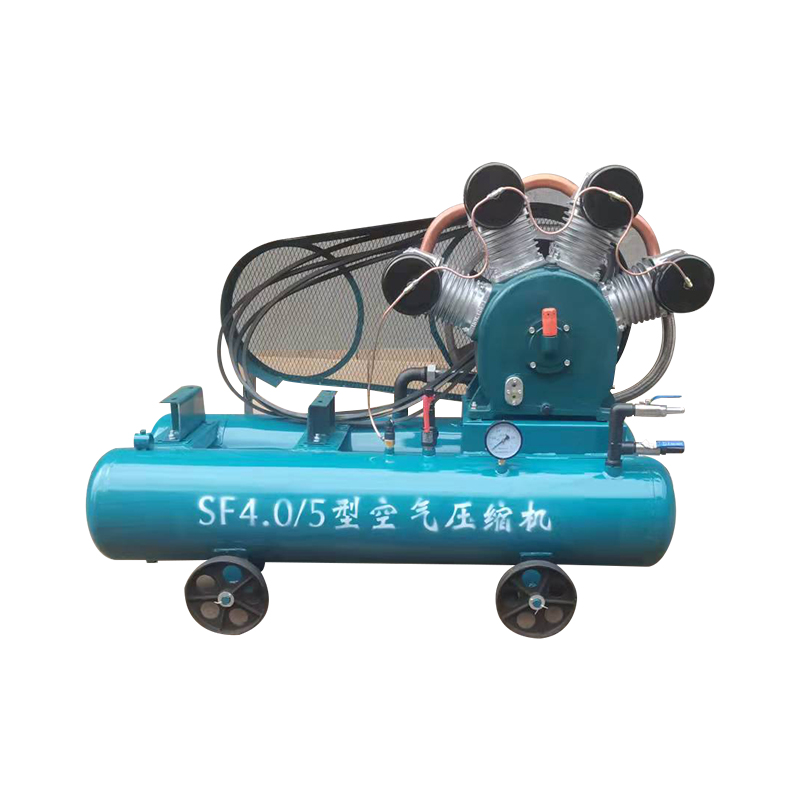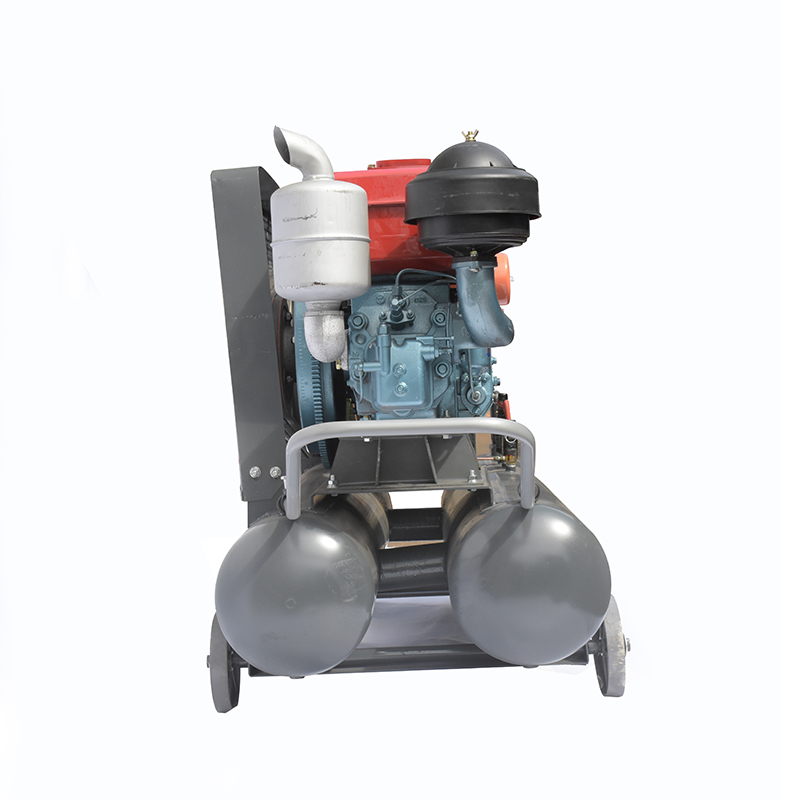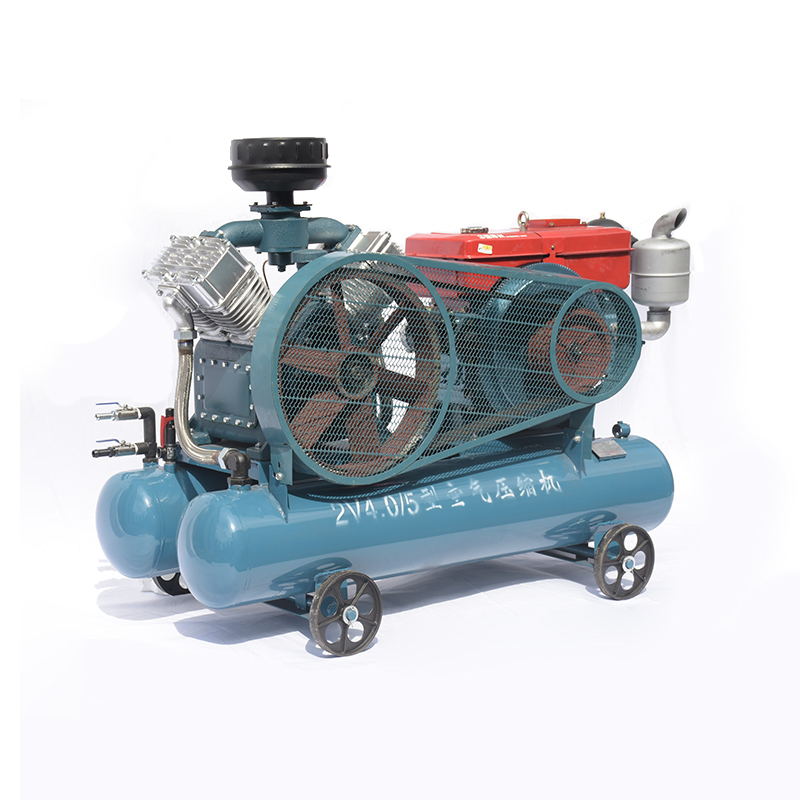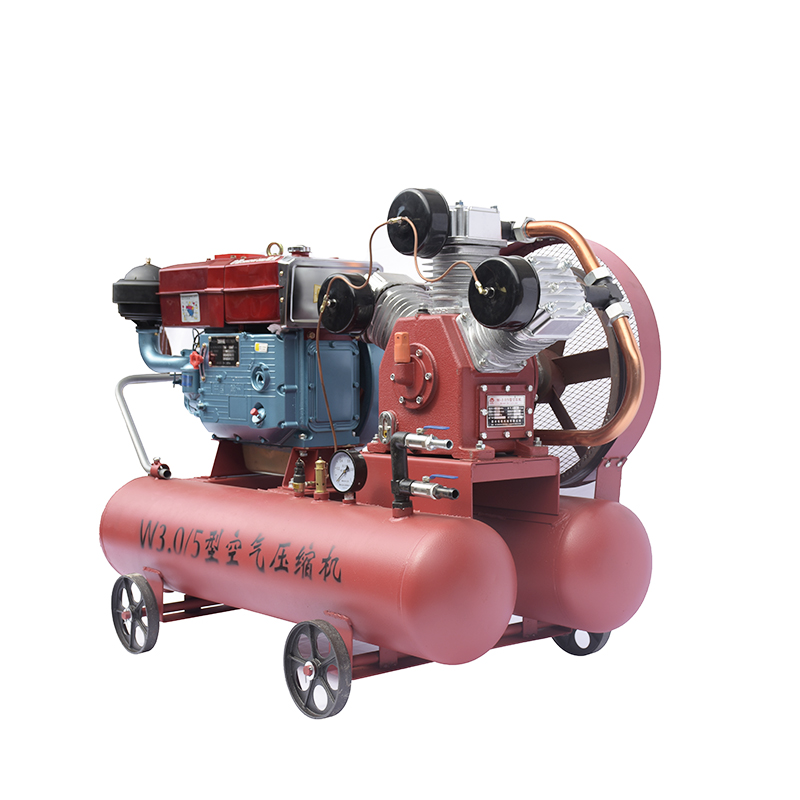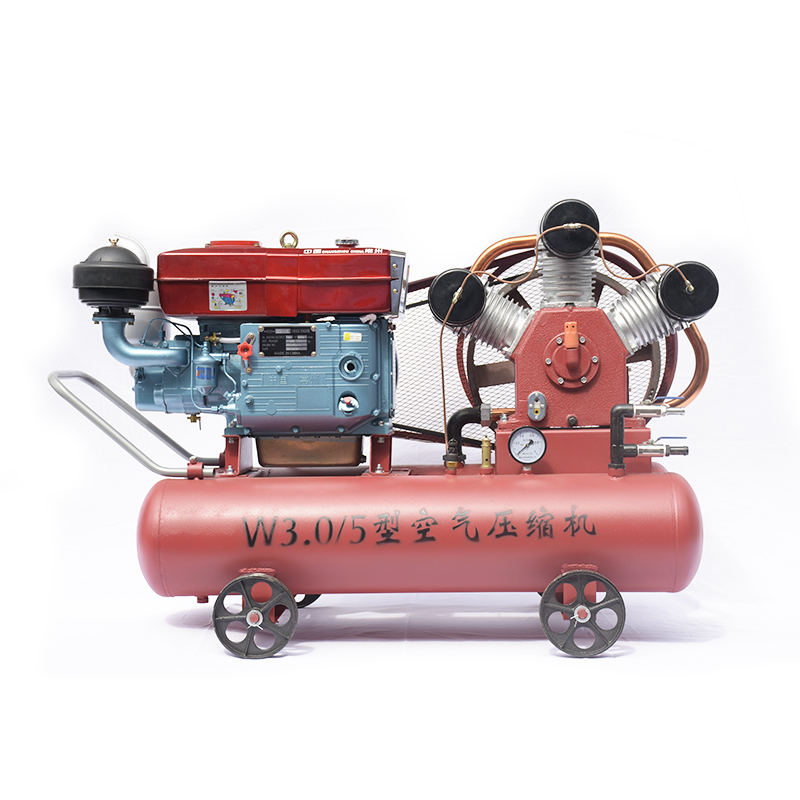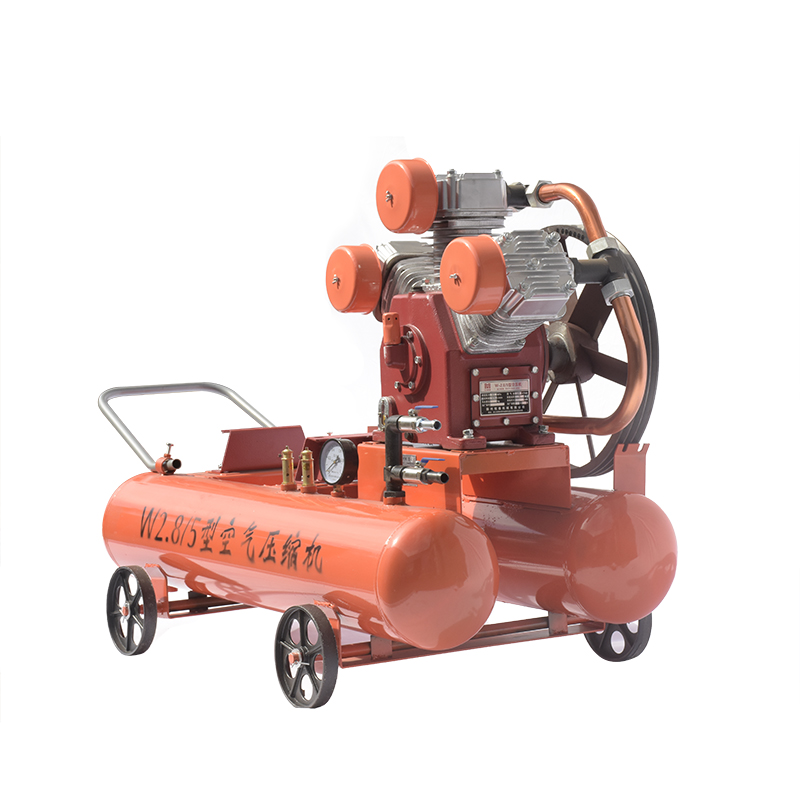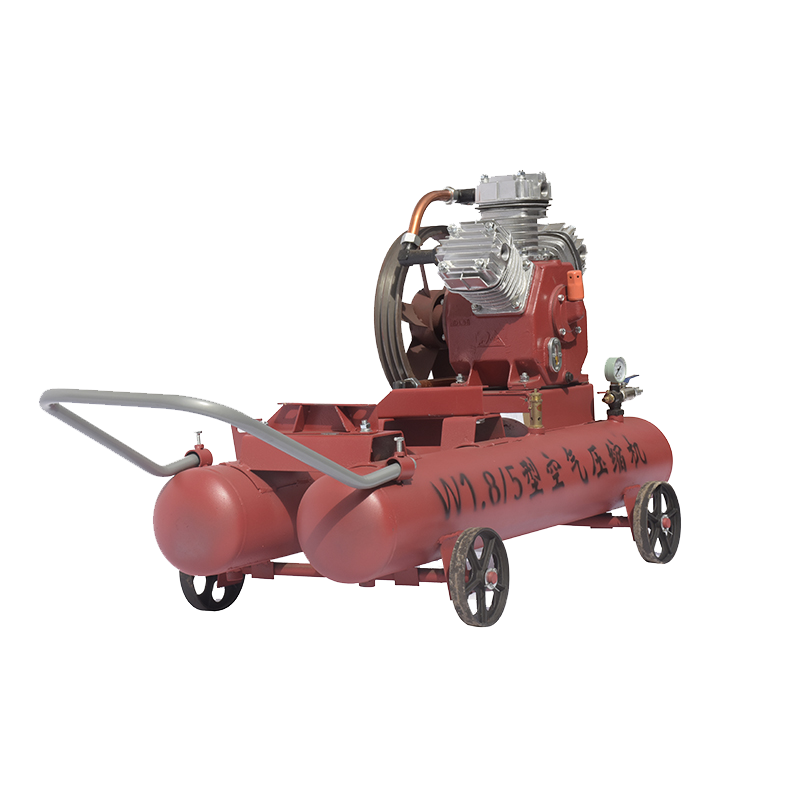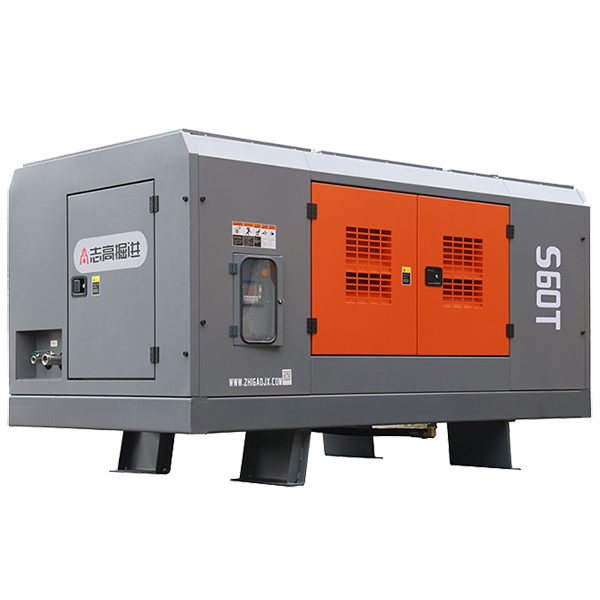One of the main cornerstones of an air compressor system is its piping – it’s responsible for bringing compressed air to its destination. Therefore, when choosing the correct tubing, it is fundamental to guarantee ultimate effectiveness and durability of the whole structure. In this article, we’ll explore multiple kinds of piping and specify the rules to abide by when selecting the most ideal choice of pipe for an air compressor line.
Copper pipe has long been a go-to for air compressor lines due to its strength, corrosion resistance, and relative ease of installation. Additionally, copper is great for heat transfer which helps keep the air in the pipes chilled. The downside of this material is its cost and inflexibility compared to other types of piping.
Many air compressor owners opt for aluminum piping as it is relatively inexpensive, lightweight, and not prone to corrosion. Despite its advantages, aluminum pipes may be vulnerable to vibrations originating from the compressor causing instability when compared to copper pipes, which are known for their total strength. Furthermore, while installation may be easier than with copper piping, it still requires attention to detail and precision.
PE is a prime selection for air compressor pipework due to its advantageous lightweight structure, ease of use when installing, resistance to erosion, and remarkable flexibility which assists in decreasing vibration. However, despite these considerable benefits PE does not carry the same strength as copper or aluminum and thus may not be suitablein situations requiring high pressures.
Although PVC is an economical and corrosion-resistant material for air compressor lines, it is not as resilient as copper or aluminum since it is of light weight and may not hold up well in terms of high-pressure conditions.
Whilst stainless steel is a great choice for an air compressor as it is incredibly durable and can withstand even the highest of pressures, the reality is that it can be pricey and may not be the easiest to install.
When looking to install effective pipelines for an air compressor, the application in question should be a primary factor in the selection process. Depending on the type of job, certain materials will exhibit more desirable properties than others. Copper is perfect for tasks wherein low pressure is necessary, and aluminum works famously in medium-pressure scenarios. Applications needing elevated pressure are best serviced by PVC piping, while stainless steel is great for those requiring extreme pressure capabilities.
Taking the diameter of the pipe into account is just as crucial as selecting the right type. A channel with substantial cross-section will be able to transport an increased amount of air – yet, surpassing a certain width could lead to a situation where the compressor is at risk of harm from excessive pressure.
While searching for the right pipe, you will undoubtedly want to take cost into account. Copper and stainless steel pipes can burn a hole in your pocket, however, aluminum and PVC offer much more reasonable prices. The trick is to identify the pipe that meets your needs best without surpassing your financial limits.
Ultimately, when purchasing pipe for an air compressor system, a buyer must factor in cost, pipe size, and the function of the setup. By analyzing each aspect of the application, it is possible to determine the best selection for meeting one’s needs. It is pertinent to remember that each type of pipe has its pros and cons; thus, the selection needs to be approached carefully. By assessing all variables at play, you are sure to make an optimal choice.
In order to optimize the performance of an air compressor, the piping system used for air delivery is critical. There is a broad range of pipe types from which users may select, each boasting their own advantages and disadvantages. So, what kind of pipe is best for air compressors?
For air compressors, the most common pipes used are the best option. This article will offer an explanation of each type of pipe, along with their benefits and potential drawbacks. Additionally, some advice will be given for choosing and installing the most suitable pipe for air compressor lines.
Pipe Options Explored
With air compressors, three types of pipes are frequently found in the lines: copper, aluminum, and plastic.
Magnificent Copper Pipe – A Mechanical Marvel
Copper pipe is regularly used in air compressor lines, favored for its formidable sturdiness, long-term trustworthiness, and corrosion-resistant characteristic. It is also a cost-effective solution, providing value without sacrificing quality.
Get Your Hands on the Latest Aluminum Piping Solutions.
If you’re seeking out an air compressor line solution that won’t break the bank and won’t easily succumb to corrosion, aluminum pipe fits the bill. Being lightweight in addition to inexpensive, it’s no wonder aluminum has become an increasingly popular pick among consumers. Despite these advantages, bear in mind that it is not as durable as copper and may become marked and corroded with prolonged use.
Piping Up: Uncovering the Benefits of Plastic Pipe
When budget is a top priority, plastic pipe takes the lead as a cost-effective choice. This type of pipe is lightweight, doesn’t corrode, and can be fixed up in a jiffy. Unfortunately, it falls short in terms of strength and durability when compared to its counterparts: copper or aluminum. In addition, it has the tendency to crack or break after an extended period of time.
Harnessing the Advantages of Different Pipe Varieties
From copper to PVC, there are many options when it comes to air compressor lines. Taking a deeper dive into the distinct advantages of each kind reveals why each pipe is so effective.
Diversion from Popularity: The Uncommonly Distinguished Copper Pipe
The strength of copper pipe sets it apart from other materials, guaranteeing robust performance even against strong pressures. Copper is also an adaptable material, being easy to shape into various forms as needed. Ultimately, its affordability makes it a great value for those planning projects on a budget.
Aluminum Piping: A Solution for Circulation and Distribution.
If you need something lightweight and one that can resist the effects of erosion over time, then aluminum pipes are a great selection. It is simple to manipulate and even bend into different configurations. Moreover, price-wise, it’s budget friendly solution that won’t break the bank.
Piping With Plastics: An Overview
Plastic pipes come with an array of advantages, the foremost being their cost-effectiveness. The budget-friendly nature of plastic makes it an excellent option for individuals and businesses choosing to contain costs. Furthermore, this type of pipe is lightweight and has impressive corrosion resistance. Additionally, installation is relatively simple and forming them into various shapes is achievable.
Exploring the Cons of Different Types of Plumbing Piping
When choosing the best pipe for your air compressor lines, it’s important to take into account the different potential drawbacks associated with the various types available.
Title: The Alluring Allure of Copper Pipes
Copper piping may be an expensive choice, though its cost can often be difficult to justify if you have limited funds. Furthermore, due to its heavier composition compared to aluminum or plastic, it may also be more challenging to install.
A Take on Aluminum Piping
aluminum piping certainly lacks the sturdiness of its copper counterpart. Over a period of time, this type of material is more prone to dents and corrosion. Even worse, the malleability of this lightweight metal makes it harder to construct and manipulate than fixtures fashioned with plastic or copper.
Pliable Piping – All You Need to Know
Plastic piping, though incurring a lower initial cost than copper or aluminum, is not nearly as enduring. Its brittleness can cause it to snap or crack if subject to force, and it is also more prone to corrosion and leakage in comparison with sturdier ducts.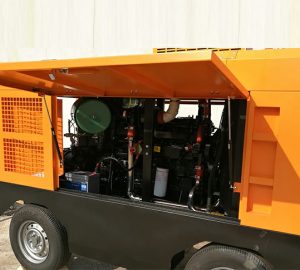
Guide to Choosing the Appropriate Pipe for Air Compressor Lines
Choosing the appropriate pipe for air compressor lines requires that certain factors be taken into account.
When determining your financial plan, the most expensive product to choose is copper, after that is aluminum, with plastic coming in at the least expensive. Though copper may provide a more sturdy and dependable solution, when dealing with a limited budget it might not be the best decision.
Pressure Prerequisites
When searching for the ideal material to withstand the intense pressures of a system, copper takes the top spot. Following that, aluminum and then plastic are suitable options for high-pressure systems.
Defense Against Deterioration: Corrosion Resistance
Choosing the right pipe should take corrosion resistance into account. Copper and aluminum are your two best options to combat possible oxidation, whereas plastic is not as immune to such deterioration.
Post time: 2023-07-10


